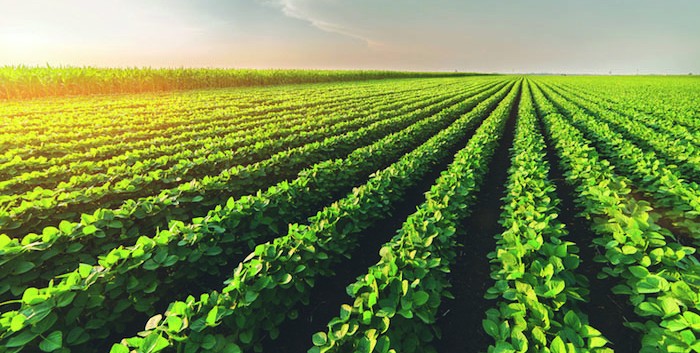A total of 38 leading UK food companies and suppliers of soy have announced a landmark set of actions to work together towards ensuring all soy used in animal feed in the UK is deforestation free.
The organisations include major UK pork processors Cranswick and Pilgrim’s UK and a number of leading retailers, including Tesco, Sainsbury’s, Morrisons, Lidl, Aldi, Waitrose and M&S. They represent nearly 60% of the UK’s soy consumption.
The NPA is one of 10 further trade associations, also including the NFU, the British Meat Processors’ Association (BMPA) and Red Tractor, supporting the initiative.
The Agricultural Industries Confederation (AIC), representing the four major importers of soy and the animal feed industry, has set out a series of comprehensive actions to deliver on the aims of the UK Soy Manifesto.
- You can read more about the UK Soy Manifesto HERE
The headline is a commitment which aims to move all the UK’s soy imports to being free from deforestation and conversion. Acknowledging that mainstream transformation on this scale cannot be achieved by companies working within their individual supply chains alone, the announcement demonstrates the group’s commitment to collective, cross supply chain action with agreement to:
- Produce a quarterly soy deforestation risk register for UK soy imports, tracking the UK’s progress in the importation of deforestation and conversion free soy.
- Agreeing a joint transition plan, coordinated by a high-level cross supply chain governance group, with support of expert stakeholders to monitor and review the transition, ensuring the risk and responsibilities are shared.
A key element of the transition plan will be to ensure UK companies producing and selling meat and dairy products (using soy in animal feed) have a practical mechanism to specify that they require deforestation and conversion free soy, with robust checks and controls to assure standards are met.
The announcement includes a commitment from AIC to develop a new verified deforestation- and conversion-free (vDCF) standard for the UK, which will be independently verified.
“Together, these actions will ensure that Signatory companies can turn their ambitions into practical actions, supporting a mass market move to deforestation and conversion free soy use in the UK that would have been difficult to achieve even a year ago,” the organisations said.
“This package of measures provides the building blocks for this transition, recognising the need to accelerate the pace of action to protect forests, balanced with the need to support the livelihoods of farmers in the UK and abroad and maintain strong resilient supplies of this critical raw material in challenging market conditions.”
The manifesto acknowledges that almost a quarter (23%) of global human-caused greenhouse gas emissions come from agriculture, forestry, and other land uses, and most of these emissions are due to deforestation.
The announcement comes as countries discuss ways to tackle the issues around climate change at COP27, in Egypt, and follows commitments made by many countries and companies at COP26, hosted by the UK in Glasgow.
As well as the commitments announced today, Signatory members are also calling for global markets to provide financial incentives and technical support to boost sustainable production. UK supermarkets Tesco, Sainsbury’s and Waitrose, for example, have invested US$ 11 million in the Responsible Commodities Facility (RCF), a new system of financial incentives for farmers in Brazil who commit to deforestation- and conversion-free (DCF) soy cultivation.
The UK Soy Manifesto aligns with and builds upon similar initiatives in other markets such as the French Soy Manifesto.
The national soy profile is expected to become publicly available in April 2023.
Commitment
James McCulloch, head of feed sector AIC, said: “The AIC Soy Supply Group commitment to providing quarterly data for a UK risk register is significant as the group is the sole source of data on what is shipped and sold to the UK as vDCF.
“The data helps all parties understand the progress that has been made and focuses attention and resource on areas where there is still work to be done. Whilst market challenges are real, our industry remains committed to delivering DCF soy and sustainable supply chains”
Ash Gilman, director of agricultural strategy at Cranswick, said: “Whilst our pig businesses already use RTRS regional mass balance physical soya, transitioning to the next level of certification is not easy, given our scale and geographical locations.
“Cranswick works collaboratively throughout the supply chain and believes today’s commitments will encourage other businesses across the industry to step up and build on current activities being driven by the UK Roundtable on Sustainable Soya, The Soya Transparency Coalition and The Soya Manifesto.”




